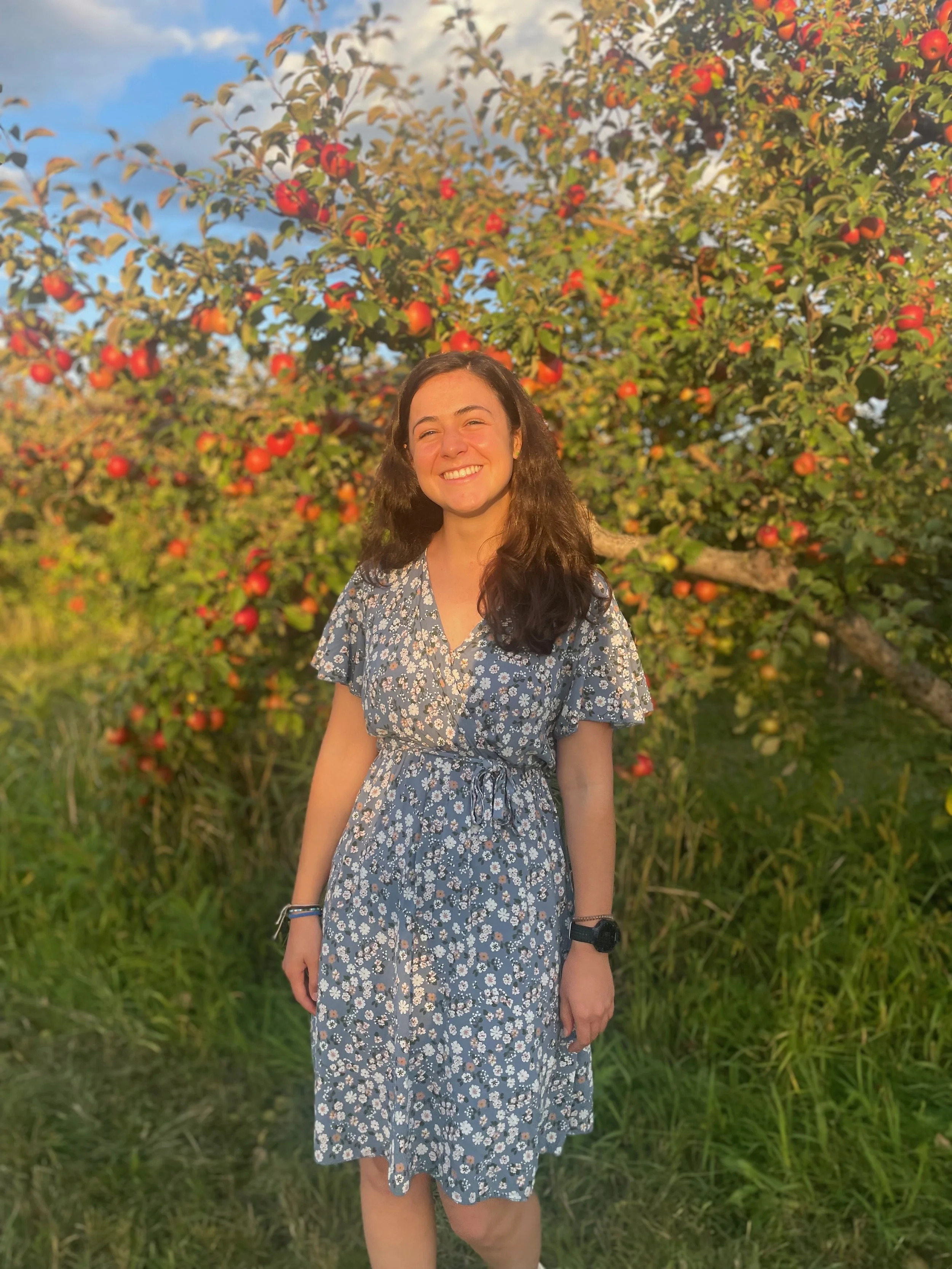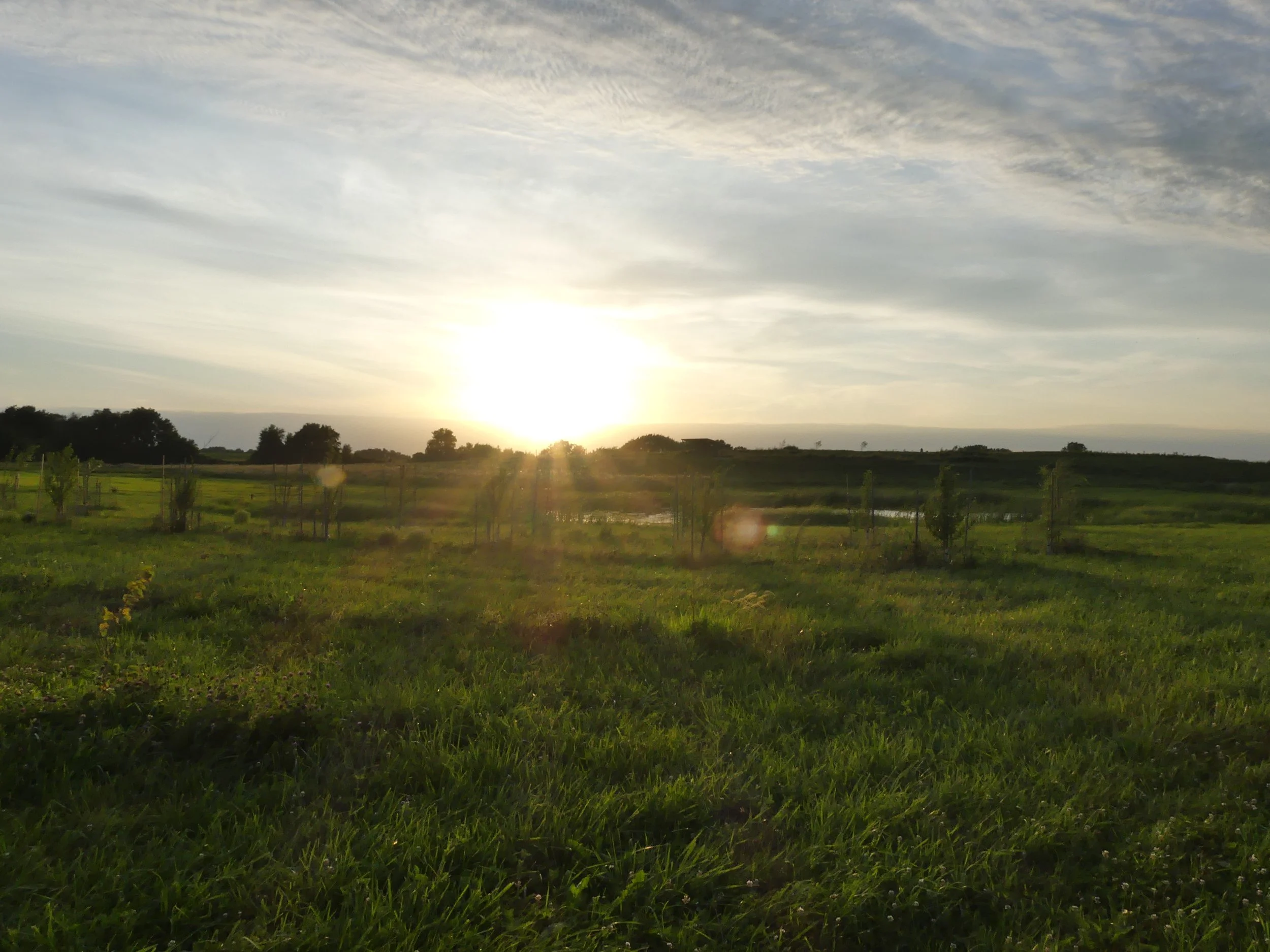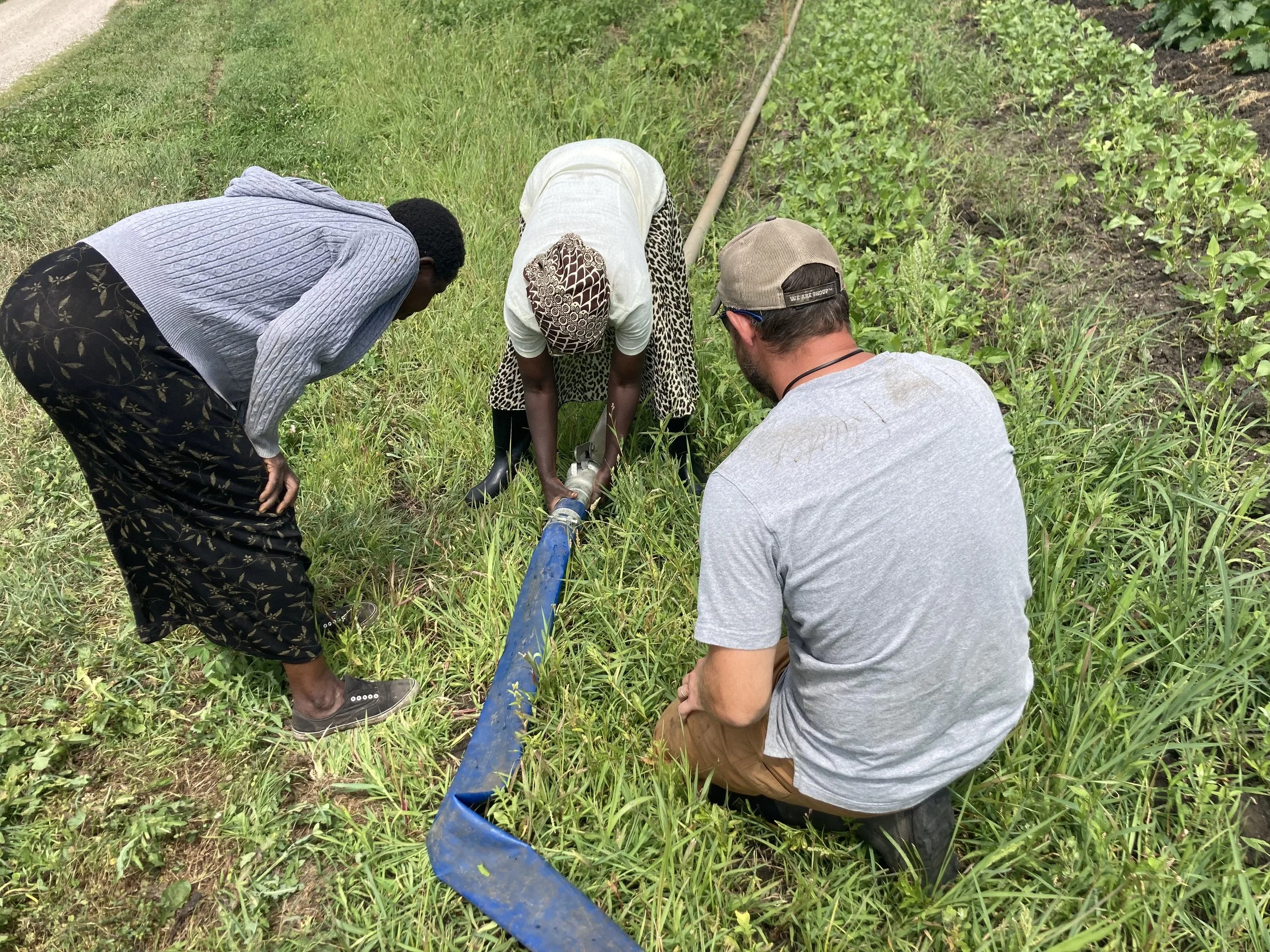Practicing Community Care
Carleton Grad’s Thesis Highlights Sharing Our Roots’ Work
Lillian Berets (photo provided by Lillian Berets)
At Sharing Our Roots, we believe that the power to heal our lands, nourish our communities, and prepare emerging farmers lies in the remarkable potential of acting from care for all parts of our ecosystem, human and otherwise.
Our work was recently highlighted thanks to Lillian Berets (she/her), a 2023 Gender, Women, and Sexuality Studies graduate from Carleton College, who discovered Sharing Our Roots’ work through the Center for Community and Civic Engagement.
Berets first attended a volunteer work day in the community orchard and began learning about the interdependent community of farmers, gardeners, and wildlife that make up Sharing Our Roots’ unique and supportive ecosystem. Her senior thesis, titled “Sharing Our Roots: A Radical Economy of Community Carework," delves deep into our commitment to care and our mission’s significance to the wider community.
Berets' work examines the transformative power of care as a subversion of capitalism and uses SOR's programming as a tangible example of how natural wealth, infrastructure, and knowledge can be shared to build intentional, inclusive, and diverse community and resilience. To support her thesis work, Berets interviewed SOR farmers, staff, and gardeners, while cultivating a relationship with the land where Sharing Our Roots Farm sits through regular visits and land walks.
Sunrise at the Sharing Our Roots Farm
At the Sharing Our Roots Farm, our farmers operate as a commons-based cohort that recognizes our shared responsibility to steward and protect communal resources such as land and water. Our work is rooted in racial justice and requires intentionality, action, and accountability. Sharing Our Roots believes in dismantling the barriers created by the pervasive racism, sexism, transphobia, homophobia, and classism that have denied marginalized groups from equitable access to the basic needs that sustain all of us – food, water, and land.
By offering affordable, long-term leases to immigrant, BIPOC, LGBTQ+, and emerging farmers, we broaden access to farming while reducing the financial burden associated with private land ownership. This approach challenges the rigid boundaries of capitalist economies, fostering flexibility through a shared economy and network of care that tends to the individual and collective needs of our community.
Communal farming embodies natural reciprocity; what benefits your crops will also benefit your neighbors’. Berets uses the term “ecologies of care” to describe the myriad of ecosystems within Sharing Our Roots, all centered around caring for the people, wildlife, and plants that find nourishment on the land. From native flower plantings to global, culturally-specific farming practices, these ecologies nurture their components economically, spiritually, and physically.
An irrigation lesson at the SOR Farm
Berets notes “Our constant giving and receiving of care is devalued by the current economic and cultural system. My use of the phrase “ecologies of care” stemmed from questioning what care work means under capitalism.” Berets points out that ecologies are always changing and co-existing - that soil depleted of organic material from years of monocropped corn production can exist in the same space as neighbors who are building that soil up while providing culturally-relevant food for their families.
Reecting on her academic work, Berets emphasizes the profound impact of witnessing community connections in action. She highlights the beauty of working on a local level and observing the growth of the connections between the parts. Berets hopes her work will inspire others to embrace community care and underscores the importance of sharing dierent ways of living that are rooted in care for ourselves, each other, and our larger ecosystems.
Lillian Berets' thesis illuminates Sharing Our Roots as a symbol of community care and resistance against capitalist exploitation. Her work underscores the importance of nurturing connections, embracing diverse perspectives, and caring for our land and communities. At SOR, we are grateful for Lillian's academic exploration and remain committed to our mission of cultivating a resilient agriculture system, rooted in the power of care.



